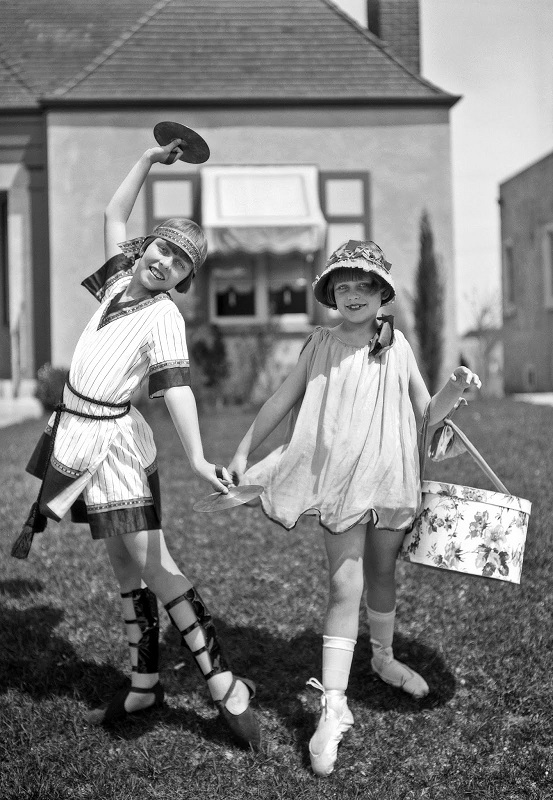
Possibly there are some readers who, every three days at 6 p.m. Paris time, visit this site in order to read a new post. Today they will find an unusual one, similar to another one that appeared exactly six months ago, as it is not devoted to presenting a writer or a poem.
Poets and Lovers is alive since one year. The database was created on March 17, 2019, then it got its domain name on the 20th.
Something unknown to many readers, both Pigtails in Paint and Poets and Lovers were impacted by the provocation mounted by the British police against their Internet service provider, as the cops confiscated some of his computers, and the two sites had to be moved on other servers.
Articles published now or later
The overwhelming majority of posts are revised versions of articles previously published on Agapeta, but I regularly introduced new material such as, in the last six months, a few poems by Pierre Louÿs, Eric Stenbock, and Graham Ovenden, as well as Oscar Wilde’s tribute to his sister Isola.
So far, I have largely focused on writers who were young girls (Hilda Conkling, Antonine Coullet, Nathalia Crane, Minou Drouet, Marjory Fleming and Sabine Sicaud), as well as on Aleister Crowley and Charles Baudelaire. At the same time, I have completely neglected others who featured prominently in Agapeta, but each one will come in due time (I can’t tell when).
And her sweet red lips on these lips of mine
Burned like the ruby fire set
In the swinging lamp of a crimson shrine,
Or the bleeding wounds of the pomegranate,
Or the heart of the lotus drenched and wet
With the spilt-out blood of the rose-red wine.— Oscar Wilde, “In the Gold Room: A Harmony“
Concerning new projects, I still intend to give a selection of poems by children in the Freinet schools, as I had announced six months ago. I will also present some French poems about kisses.
Agapetae
This is the name of the category containing poems written by myself, all of them in French. Some of them are new, others appeared first in Agapeta, where the category “Agapetae” had two sub-categories “Fleurs de Passion” and “Désirs Ailés.” Many use a cryptic and metaphoric language. Indeed, history shows that this has always been a necessary precaution for heretics in times of Inquisition.
Love could I make the lily-petals part
And filch the treasures of its golden seed,
Or swoon for passion in the rose’s heart
Till its red leaves with redder pain did bleed.— Oscar Wilde, “La Belle Gabrielle”
For a little girl, saying no to parents means being forced
The blog Of Battered Aspect by Dave Hingsburger has an interesting article dated July 19, 2014 and titled “No Means Force.” The author tells a scene that he witnessed. A mother brings her six or seven years old daughter at a jewelry booth in order to have her earlobes pierced. The little girl protests “that she doesn’t want her ears pierced, that’s she’s afraid of how much it will hurt, that she doesn’t like earrings much in the first place.” The mother and two other women, who work the booth, pressure her, but the girl keeps crying. “We heard, then, two small screams, when the ears were pierced.” The author concludes:
Little children learn early and often that ‘no doesn’t mean no.’
Little children learn early that no one will stand with them, even the two old men looking horrified at the events from the cafeteria.
Little girls learn early and often that their will is not their own.
No means no, yeah, right.
Most often, for kids and others without power, “no means force.”
Again, infantilism about Nathalia Crane
Many people admit “child geniuses” as long as their talent expresses itself only in childish activities. But they won’t accept children showing an adult understanding of sensitive subjects.
I have previously mentioned that, as would happen with Minou Drouet thirty years later, some people claimed that Nathalia Crane could not have authored the poems attributed to her, because they showed an understanding beyond her age, in particular a “sophisticated viewpoint of sex” and a “knowledge of history and archeology.”
On January 9, 2018, Ann Hulbert published in Literary Hub a chapter of her book Off the Charts: The Hidden Lives and Lessons of American Child Prodigies, titled “The child-poet genius of Brooklyn.” As others before her, she stresses that the topics of her works are not those of a child of her age:
Nathalia was dealing in fantasy, but it wasn’t the usual juvenile kind, with talking animals or fairy rings. Her themes were sex and class.
At the end, she doubts the authenticity of Nathalia’s authorship of sophisticated poems such as “Lava Lane” and suggests the usual alternate “hypotheses,” a hoax or a medium:
Could an eleven-year-old—whose teachers said she wasn’t remarkable, and whose parents, one article noted, hadn’t gone beyond high school—really have written these poems? The same article quoted Nathalia’s own publisher saying, “I am as much mystified as anybody. Nathalia Crane is either a miracle or she is the most colossal hoax in history.” Or perhaps there was a third alternative. “Sometimes I wonder if Nathalia Crane is not a medium.” Seltzer emphasized that he refrained from grilling this fragile girl on the sources of her more gnomic creations, for fear of making her “self-conscious.” That, all agreed, was fatal to innocence.
Again, the girl is arbitrarily called “fragile,” and Hulbert considers making her “self-conscious” as a danger to her “innocence.” So, children should remain ignorant and unconscious of themselves!

